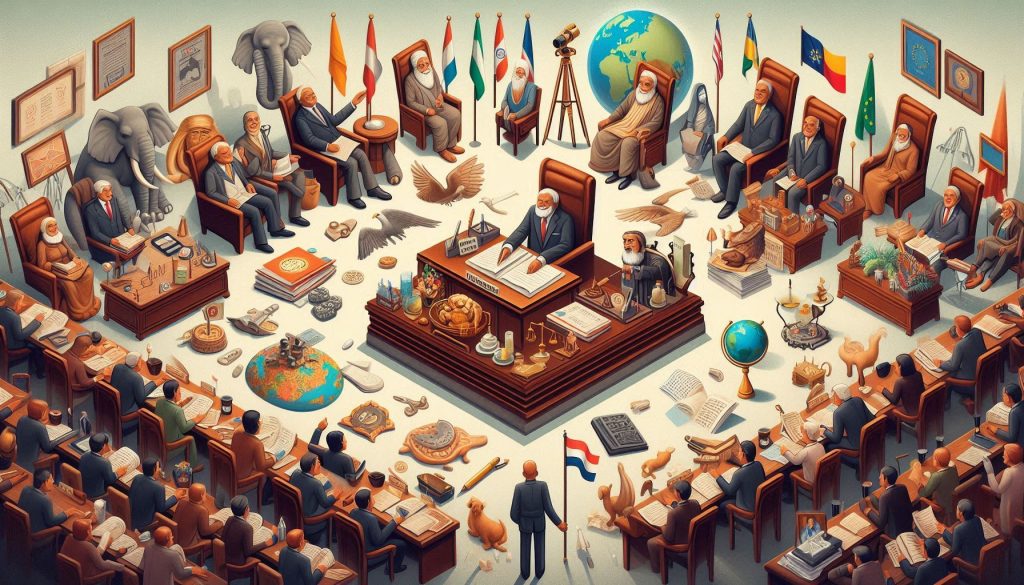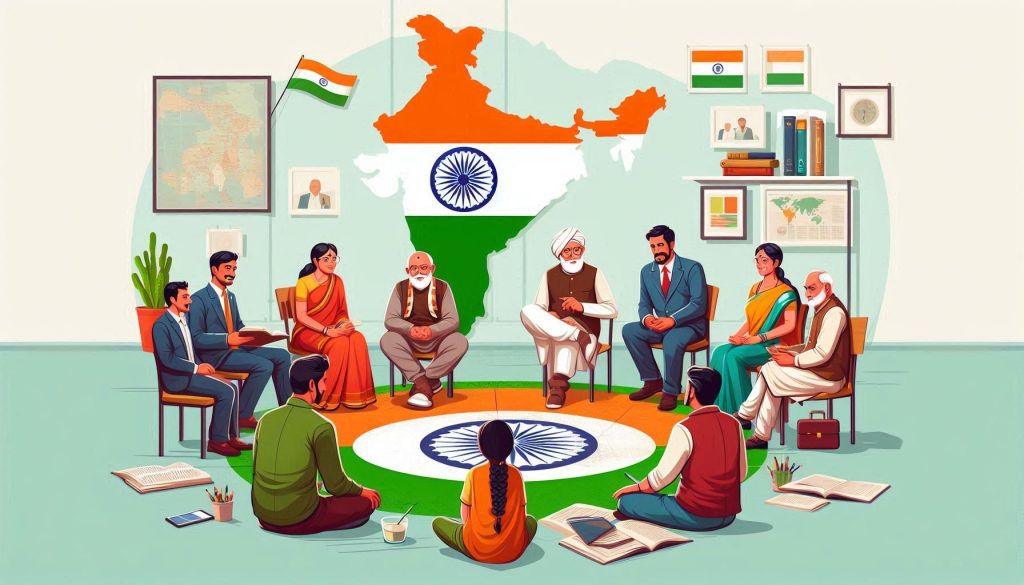Political Theory: An Introduction – Complete Guide For Class 11 Political Science Chapter 1

Welcome to iPrep, your Learning Super App. Our learning resources for the chapter, “Political Theory: An Introduction” in Political Science for Class 11th are designed to ensure that you grasp this concept with clarity and perfection. Whether you’re studying for an upcoming exam or strengthening your concepts, our engaging animated videos, practice questions and notes offer you the best of integrated learning with interesting explanations and examples.
Politics influences every aspect of our lives, from the laws we follow to the rights we enjoy. In CBSE Class 11th Political Science Chapter “Political Theory: An Introduction,” we dive into the fundamental principles that shape our political world. This chapter lays the groundwork for understanding not just how governments function, but why they exist, exploring the ideals that guide political decision-making. Through this journey, you’ll uncover how concepts like freedom, equality, and justice have shaped societies across history and continue to influence the world today. Prepare to challenge your perspectives and deepen your grasp of political thought.
Political Theory: An Introduction
The chapter “Political Theory: An Introduction” serves as a foundation for understanding the critical concepts and values that shape political life. It explores essential questions such as how society should be organized, the role of government, and the importance of values like freedom, equality, and justice. The chapter also delves into the relevance of political theory in contemporary society and how it informs our understanding of political institutions and practices.
Political theory is the systematic study of ideas and principles that form the backbone of political life. The chapter “Political Theory: An Introduction” provides an overview of crucial questions related to society, governance, and the values that should guide political decisions. This chapter emphasizes the significance of political theory in understanding and addressing the challenges of modern society and the role it plays in shaping our political institutions and social life.
Objectives Of Learning The Chapter
Now that we have analyzed the chapter’s significance, let’s consider the objectives of studying “Political Theory: An Introduction.”
- Understand the importance of reason and reflection in human actions.
- Analyze fundamental questions related to society, government, and individual rights.
- Explore the values that inform political life, such as freedom, equality, and justice.
- Examine the role of political theory in shaping political institutions and social life.
- Understand the relevance of political theory in contemporary society.
Now let’s explore the various sections of the chapter.
Firstly, to understand the basic concept of politics, let’s undertake the section “What is Politics?” of the chapter “Political Theory: An Introduction.”
What is Politics?

Politics is the study of power or the power struggle. No society can exist without some form of political organization and collective decision-making. Various social institutions, such as the family, tribes, and economic institutions, have emerged to help people fulfill their needs and aspirations. These institutions play a crucial role in helping us live together while acknowledging our obligations to each other.
The key points that are covered in this section are discussed herewith:
- Political Organization:
Every society needs some form of political organization to make collective decisions.
- Role of Government:
The actions of the government affect people’s lives in various ways, including economic, foreign, and educational policies.
- Public Engagement:
People take an active interest in government actions, and politics often arises from differing visions of what is just and desirable for society.
Now, to understand the scope of political theory, let’s undertake the section “What do we study in Political Theory?” of the chapter “Political Theory: An Introduction.”
What do we study in Political Theory?
Political theory examines the values and principles that have inspired people and guided policies throughout history. Ideas like democracy, freedom, and equality are central to political theory. These values are often enshrined in constitutions, as seen in the American and Indian constitutions. Political theory helps clarify the meaning of concepts such as freedom, equality, and justice and examines principles like the rule of law and judicial review.
The important points of this section are mentioned below:
- Historical Context:
Political theory has been debated by thinkers like Kautilya, Aristotle, Rousseau, Marx, Gandhi, and Ambedkar.
- Constitutional Values:
Constitutions are built on ideas and principles that have been debated for centuries.
- Clarification of Concepts:
Political theory clarifies the meaning of concepts like freedom, equality, justice, and democracy.
Now, to understand the contemporary relevance of political theory, let’s undertake the section “Why is Political Theory Relevant Today?” of the chapter “Political Theory: An Introduction.”
Why is Political Theory Relevant Today?
Even though India is a free and independent nation, questions regarding freedom, equality, and democracy continue to arise in various spheres of social life. The chapter “Political Theory: An Introduction” explains why political theory remains relevant by helping us address new challenges and interpret fundamental rights in changing contexts. As the world evolves, new dimensions of freedom and threats to it emerge, making political theory essential for understanding and addressing these issues.
The crucial points covered in this section are:
- Contemporary Relevance:
Political theory helps address new challenges in freedom, equality, and democracy.
- Interpretation of Rights:
Courts and governments continuously interpret and expand fundamental rights.
- Global Challenges:
New technologies and global communications bring both opportunities and challenges to freedom.
Now, to understand how political theory is applied, let’s undertake the section “Putting Political Theory into Practice” of the chapter “Political Theory: An Introduction.”
Putting Political Theory into Practice
The chapter “Political Theory: An Introduction” focuses on the origins, meaning, and significance of political ideas like freedom, equality, citizenship, justice, development, nationalism, and secularism. Political theorists provide diverse definitions of these concepts and engage with everyday opinions, debate possible meanings, and explore policy options. Understanding political theory helps us examine our ideas and feelings about political issues systematically.
The important subheaders of this section are:
- Application of Political Theory:
Political theory helps clarify the meaning of political concepts in the context of human relationships.
- Systematic Thinking:
It encourages systematic thinking about justice, equality, and other political concepts.
- Everyday Relevance:
Political theory is relevant for understanding and addressing everyday political issues.
Now, to understand the importance of studying political theory, let’s undertake the section “Why Should We Study Political Theory?” of the chapter “Political Theory: An Introduction.”
Why Should We Study Political Theory?
The chapter “Political Theory: An Introduction” explains why studying political theory is essential for several reasons. Firstly, it is relevant for anyone interested in political science, law, or public administration. Secondly, as citizens entitled to vote, having a basic knowledge of political ideas and institutions helps us act responsibly. Finally, political theory encourages us to examine our opinions on political issues, allowing us to argue in an informed manner for the sake of common interests.
The crucial points examined in this section are:
- Relevance to Future Careers:
Political theory is essential for those interested in political science, law, or public administration.
- Informed Citizenship:
Understanding political ideas and institutions helps us act responsibly as citizens.
- Critical Thinking:
Political theory encourages critical thinking and informed debate on political issues.
Finally, as we have gained comprehensive knowledge about the chapter ‘Political Theory: An Introduction’, let’s reflect on the overall learning value of this important lesson.
Overall Learning Value of the Chapter
The chapter “Political Theory: An Introduction” provides a comprehensive understanding of the foundational concepts of political theory. It explores the values and principles that shape political life and examines the relevance of political theory in addressing contemporary challenges. By studying this chapter, students gain a deeper understanding of political concepts like freedom, equality, justice, and democracy, and are encouraged to think critically about political issues.
In conclusion, CBSE Class 11th Political Science Chapter “Political Theory: An Introduction” offers a profound understanding of the essential concepts that form the foundation of political thought. This chapter equips students with the knowledge of fundamental political values such as freedom, equality, and justice, while also encouraging them to reflect on the role of political institutions and theories in shaping our world.
As students engage with this chapter, “Political Theory: An Introduction,” they gain the tools to critically analyze political issues, preparing them for informed citizenship and future roles in governance, law, or public administration. At iPrep, we ensure that learning “Political Theory: An Introduction” is not just informative but also interactive, with resources designed to foster deeper understanding and critical thinking.
Practice questions on Chapter 1 - Political Theory
Get your free Chapter 1 - Political Theory practice quiz of 20+ questions & detailed solutions
Practice Now








